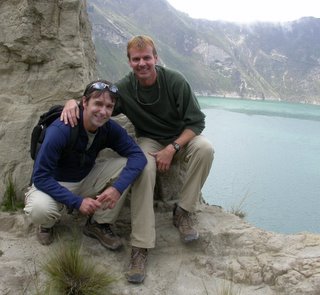The New Yorker on Obama
Profiles: The Conciliator: Reporting & Essays: The New Yorker: "“There is a running thread in American history of idealism that can express itself powerfully and appropriately, as it did after World War II with the creation of the United Nations and the Marshall Plan, when we recognized that our security and prosperity depend on the security and prosperity of others. But the same idealism can express itself in a sense that we can remake the world any way we want by flipping a switch, because we’re technologically superior or we’re wealthier or we’re morally superior. And when our idealism spills into that kind of naïveté and an unwillingness to acknowledge history and the weight of other cultures, then we get ourselves into trouble, as we did in Vietnam.”
In his view of history, in his respect for tradition, in his skepticism that the world can be changed any way but very, very slowly, Obama is deeply conservative. There are moments when he sounds almost Burkean. He distrusts abstractions, generalizations, extrapolations, projections. It’s not just that he thinks revolutions are unlikely: he values continuity and stability for their own sake, sometimes even more than he values change for the good."
In his view of history, in his respect for tradition, in his skepticism that the world can be changed any way but very, very slowly, Obama is deeply conservative. There are moments when he sounds almost Burkean. He distrusts abstractions, generalizations, extrapolations, projections. It’s not just that he thinks revolutions are unlikely: he values continuity and stability for their own sake, sometimes even more than he values change for the good."


<< Home